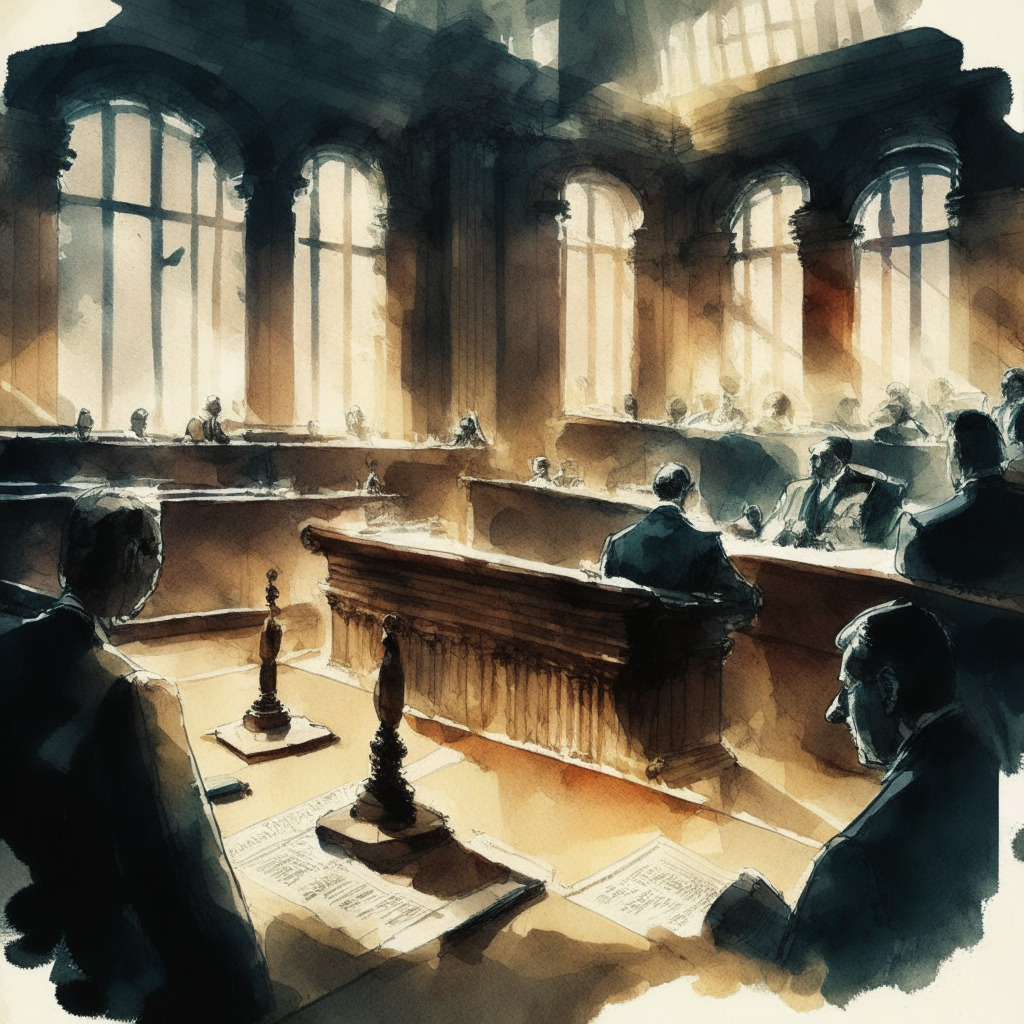A notable wave of contention is swelling in the crypto world as the legal representative for Sam Bankman-Fried, the former CEO of a now-defunct exchange challenged the proposed jury questions by the US government. The lawyer claims these questions could create a bias in the courtroom, leading to an unjust trial for Bankman-Fried.
The legal’s concerns zoom into the potential of these proposed questions being able to evoke prejudiced responses from the jury. His claim that the purported voir dire discourages a full declaration from potential jurors is a cause for worry in the crypto community. Additionally, he points out that the questions already assume Bankman-Fried’s guilt in fraud and money laundering, keeping the jury unbalanced right from the onset.
This upheaval in the courtroom comes at a time when the crypto space is already under scrutiny concerning regulatory frameworks. The government’s objection to Bankman-Fried’s proposed questions, which touch on pretrial publicity and political donations among others, shows the strain between crypto entities and regulatory bodies. On one hand, is the need to face a fair trial without bias and on the other, the necessity to draw the line where the crypto market could potentially intersect with fraudulent activities.
Simultaneously, in a similar vein, the SEC has come under fire over allegations of misrepresenting evidence. This follows a controversy where Terraform Labs co-founder refuted claims against him after a revelation of a slack conversation discussing strategies to attract investors.
The scenarios at hand not only bring in a sceptical flavor but also give rise to questions about the transparency in terms of regulations within the crypto world. Despite these happenings, it’s important to note that as the legal drama unfolds in the world of blockchain and crypto, it’s the users and investors at the end of the chain that grapple with the consequences. They are left with uncertain balance where they must navigate between the promise of the future and the fear of falling into a pit of unregulated entities.
While we cannot deny the potential of digital currencies, perhaps this is a wake-up call. There’s a profound need for unbiased legal frameworks that ensure the secure use of blockchain and cryptocurrencies, which, in turn, leaves room for innovation and growth in the digital currency space. Thus, the future may well hinge on finding a balance between regulation and innovation, a task easier said than done.
Source: Cointelegraph




